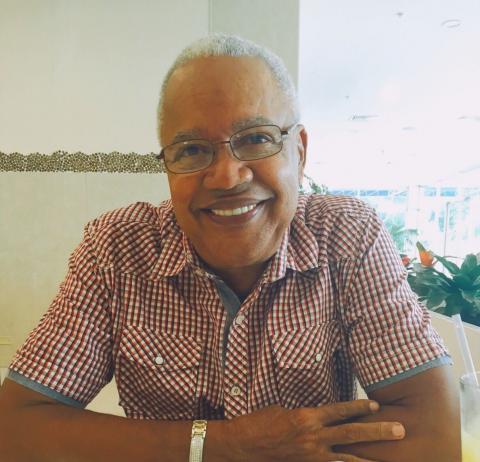
June 1 marked the beginning of the hurricane season, which means we can be sure that preparations are being made behind the scenes led by the Ministry of Health. There are management plans and protocols in place to respond to disasters.
Although hurricanes seem to be affecting us with less frequency, it is still imperative that we stick to our course of preparation and look to additional means of driving improvement in this process.
There is now an opportunity to use technology to modernise emergency preparedness and response efforts while achieving better coordination through linked systems.
First, we need to focus on how our various ministries and disaster preparedness agencies can work together in a more efficient and coordinated way. The health system is usually at the centre of disaster management and coordination – for obvious reasons.
Any area of life that is affected by a disaster will most likely have repercussions in health, whether by injuries, water contamination, growth of parasites, spread of bacterial infections and viruses, food-borne illnesses, reduced access to medical care, and more.
Our first step, therefore, needs to be equipping the health ministry with the technological tools necessary for internal coordination. We need to be able to quickly pinpoint available resources in each facility in all the health regions and coordinate in such a way that resources can be moved around efficiently as needed.
It is also important to be able to quickly ascertain the state of affairs for each section of the island for a more effective and speedy response. This could be the difference between life and death and the continued spread of illnesses. The Health Information Management System (HIMS) at The University Hospital of the West Indies could achieve this easily with the added bonus of potentially linking to private-sector facilities for a more holistic view of the health situation.
LINKAGES
The HIMS allows linkages with all parts of the health system, including pharmacy and lab, which are also essential to access in times of disaster and response to health events.
Once we have achieved this, we will need to add other agencies to be part of the process. While it is not necessary for these other agencies to have such a holistic system, a module, for example, that deals with inventory management, could prove useful in ensuring that resources are properly shared and monitored.
Agencies such as the Office of Disaster Preparedness and Emergency Management, the police, army, and fire brigade would be essential to this. We could also look at the possibility of having a sharing network that connects all relevant emergency response bodies to facilitate online real-time agency to agency communication.
The next step is to integrate with the region. Disasters like hurricanes and even some communicable diseases that can spread through travel and trade generally affect more than one Caribbean territory and the benefits of shared resources and proper coordination in this regard could be immense.
The Pan American Health Organization (PAHO), of which Jamaica is a member, had a regional emergency response team, with membership from all of PAHO’s regional member states. The technology would give us the perfect opportunity to take a more unified approach to disaster management, preparation and response, and pool resources for better and quicker outcomes.
It is not necessary for every territory to have the same system, but it is essential for all the systems to be interoperable. Therefore, we should not be choosing systems in a vacuum. We may not realise it now, but later on when a coordinated approach is necessary, we may have a problem with our systems connecting with, and speaking to, each other, to our detriment.
I have long suggested that the Caribbean should purchase their HIMS as a group through a coordinating agency such as PAHO or CARICOM or even The University of the West Indies, since it is a regional body and already has a licence.
Ongoing information sharing can be optimised through integrated technology. This is key to disaster management and response and to meeting public-health needs before, during and after an event.
The technology can allow us to work together routinely outside of disasters and emergencies, which would mean improved results all around.
- Doug Halsall is chairman and CEO of Advanced Integrated Systems. Email feedback to columns@gleanerjm.com and doug.halsall@gmail.com.
http://jamaica-gleaner.com/article/news/20190616/health-tech-enhancing-d...

